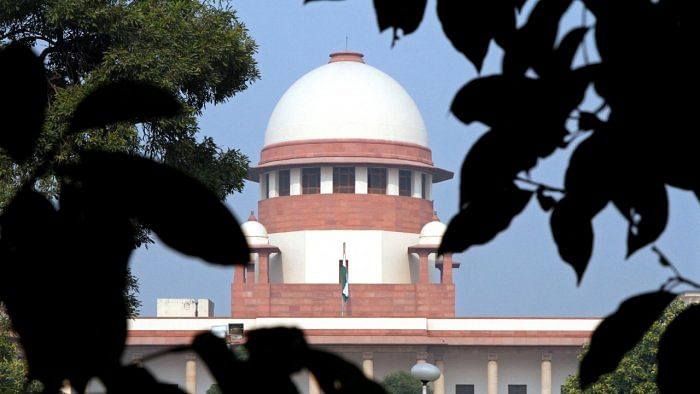
The Supreme Court on Tuesday objected to a public statement by Union Home Minister Amit Shah over the "politicisation" of the issue of a 4 per cent quota for Muslims in jobs and education in Karnataka at a time when the matter was being heard by it.
"We cannot permit politicisation like this when we are ready to hear the matter," a bench of Justices K M Joseph, B V Nagarathna and Ahsanuddin Amanullah said.
The court's observation came when senior advocate Dushyant Dave, appearing for the petitioners, referred to the statement having been made by Union Home Minister Shah.
The minister is reported to have called the Muslim reservation against the Constitution.
"When the matter is sub judice and before this court, such statements should not be made," the bench said.
Solicitor General Tushar Mehta, appearing for the Karnataka government, maintained that any religion-based reservation is unconstitutional.
He, however, denied any knowledge of such a statement and stressed that "in the manifesto, one is entitled to".
"Public statements on this should not be made. We have nothing to do with politics," the bench said.
Dave, for his part, said he can put the statement of the minister on record before the court.
The court adjourned the hearing in the matter, arising out of a batch of petitions filed by L Ghulam Rasool and others, to July.
It also took into record a statement by the Solicitor General that no action would be taken on the state government's March 27 decision to scrap the 4 per cent reservation to Muslims.
The petitioners said the identification of the Muslim community as a socially and educationally backward class has been approved by the Supreme Court in Indra Sawhney vs Union of India, 1992 (Mandal case).
They also contended that the inclusion of the Muslim community in the EWS list is unlawful.
